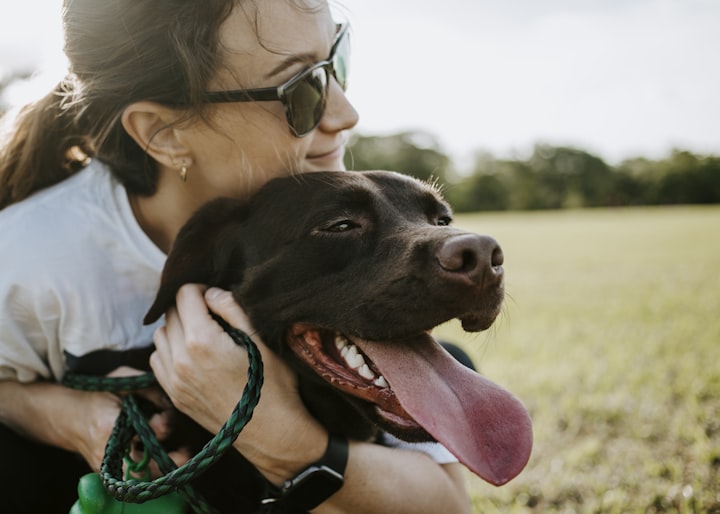The 8 benefits of addiction treatment with pets
This is how pet addiction treatment helps overcome the disorder

In addition to being our most faithful companions and providing us with large doses of joy and happiness, pets or companion animals can help us overcome a wide variety of physical or psychological disorders.
The therapeutic benefits of these beloved animals have been known for centuries and both psychology and medicine have used them to treat multiple pathologies.
The interaction or coexistence with a companion animal, especially with dogs and other animals that are easy to tame due to their natural tendency to prosocial behavior and to provide unconditional affection and love, has been shown to have a very notable curative and therapeutic effect on people who may present cases of addictions, whether chemical or behavioral.
Below we will briefly present the main benefits that pets bring to the treatment of addictions in humans.
How can pet therapy help overcome addiction?
The main therapeutic effects of interacting with a pet are as follows.
1. Increased self-esteem
Dealing with a pet, especially a dog, gives anyone with addictions a reason to go through the process of detoxification and rehabilitation by seeing that they are not totally cut off from the rest of the world by the animal's displays of affection , and this a motivating element to improve every day. In other words, pets help a person believe in her ability to improve and be loved.

This improvement in self-esteem is of great importance in people with addictions, since at any time when self-esteem levels drop, there can be a relapse towards consumption in the middle of an addiction treatment process.
2. Decrease in associated psychological alterations
In addition to increasing self-esteem, a pet is an excellent ally to help us reduce our levels of anxiety, depression, stress, nervousness or any other symptom associated with a psychological disorder .
The constant affection and joy that a companion animal can give us, especially dogs, as has been indicated, is an emotional support that is just as important as that which a close friend or family member could give us.
3. Improved autonomy
One of the main objectives of psychological therapy in people with addictions is to ensure that the person regains full autonomy in their day-to-day life and manages to function both personally and socially with complete normality.
This means that the person is able to take on responsibilities and carry them out successfully , to carry out simple or complex activities effectively and even to know how to take care of another living being, such as a pet.
The progressive learning of the care that a domestic animal needs results from training to face the challenges that the person will encounter in the real world once it is cured.
4. Key in the acquisition of responsibilities
As has been indicated, it is essential that the person gets used to acquiring responsibilities that will allow him or her to successfully integrate back into life in society, once the detoxification treatment is finished.
The acquisition of new responsibilities also contributes positively to increasing the person's self-esteem and motivation , as well as improving their general well-being and mood.
5. Improved communication and social skills
Being in contact with a pet and living with it on a daily basis also has a therapeutic effect in improving the communication and social skills of the person.
With a pet we can learn a lot about relationships and even if it is not a relationship between human beings, people with addictions can later put into practice many of the things learned with their pet .
The main values that can be learned by living with a pet are those of unconditional affection, care and the establishment of significant emotional bonds.
6. Key in acquiring organizational skills
This new acquired organization, related to the care of our animal, is key for the person to acquire organizational skills that they will be able to put into practice in the future and that will be very useful in their integration back into society .
Such everyday things as daily walks, lunch and dinner times, cleaning tasks for the pet and visits to the vet are of great importance and are very important learning and psychological training.
7. Establishing a positive bond
The emotional and affective bond that is established with the pet is one of the main therapeutic assets that exist in the treatment with pets.
Animal lovers know that the bond established with them can be as strong as with a human being, which allows the addicted person to train all kinds of skills and relationship strategies with their animal, which they will later apply in life. daily life with other people.
8. Improved personal well-being
Mental health professionals have been able to verify how living with an animal intervenes in a greater release of neurotransmitters related to happiness in the brain , among which dopamine, oxytocin or serotonin stand out.
This change in the functioning of the brain contributes to an improvement in the general well-being of the person, to a higher mood and higher levels of self-esteem, motivation and happiness.






Comments
There are no comments for this story
Be the first to respond and start the conversation.